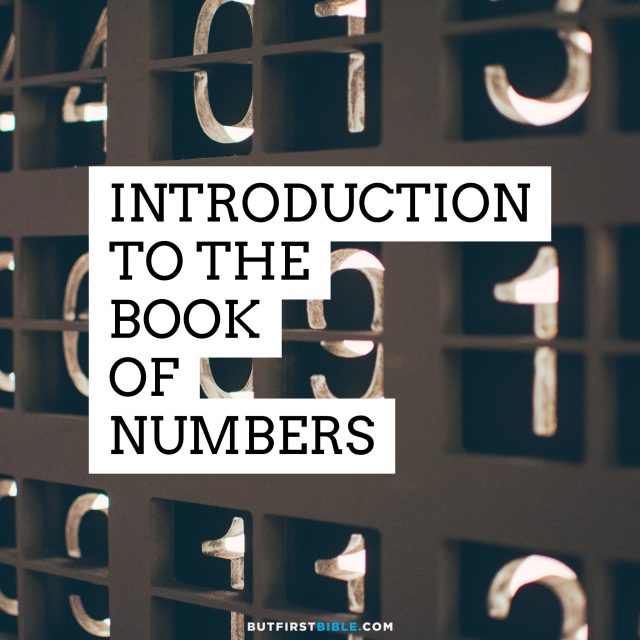
Welcome to the “But first, Bible” daily devotional podcast with Dave Miers.
Our readings for today are Numbers 1-2 and Mark 3:1-21.
As we begin the Old Testament book of Numbers I have a challenge for you today. Send a text to 3 Christian friends and ask if they have a bible reading plan. If they don’t have a plan encourage them to join in with the But First, Bible reading plan. Even if they don’t listen to these devotions, get them to start reading Numbers and Mark’s Gospel.
You can find the reading plan at butfirstbible.com, also it’s available in the ESV Phone app in the plan called ‘Read Through The Bible’, and ESV also has a podcast called ‘Read Through The Bible’ where you can listen to the Bible readings as part of this plan.
But now, to the book of Numbers.
I recently highlighted that esv.org and the ESV Bible app has given access to the Global Study Bible for free. It’s a simple companion to use as you read through books of the bible.
Today I thought I’d read to you from the Global Study Bible’s Introduction to the book of Numbers.
Author and Date
Moses is the source and primary author of the book of Numbers, which is the fourth volume in the Pentateuch. Its English name comes from the censuses in chs. 1–4 and 26.
Numbers tells of Israel’s journey from Mount Sinai to the borders of the Promised Land, summarizing some 40 years of the nation’s history. With Israel having been freed from slavery in Egypt and then receiving the law (Exodus and Leviticus), the book of Numbers begins with the people’s final preparations to leave Sinai. It then records their triumphal setting out, before a series of events in which the people grumbled about the difficulty of the journey and the impossibility of conquering Canaan. This response leads God to delay their entry to Canaan by 40 years. The closing chapters of the book tell how the people at last set out again and reach the banks of the Jordan, ready to cross into the land promised to their forefathers.
Theme and Purpose
The theme of Numbers is the gradual fulfillment of the promises to Abraham that his descendants would be the people of God and would occupy the land of Canaan. The book shows the reality of God’s presence with Israel in the pillar of cloud and fire over the tabernacle. It also shows how Israel’s unbelief delays the entry into Canaan and costs many lives. Nevertheless, by the end of the book, Israel is ready to enter the land.
Key Themes
There were four elements to God’s promise to Abraham in Genesis 12:1–3, and they all play a role in Numbers:
-
The land. Numbers describes Israel’s journey toward the Promised Land.
-
Descendants. Abraham had been promised that his descendants would be as many as the stars of heaven (Gen. 15:5). Jacob’s family consisted of just 70 persons when he entered Egypt (Gen. 46:27). Now they had increased immensely. The first census (Num. 1:1–46) showed that the fighting men numbered 603,550. That did not include women and children. Surveying their camp from a hilltop, Balaam declared, “Who can count the dust of Jacob or number the fourth part of Israel?” (23:10). Balaam went on to predict that Israel would become a powerful kingdom in its own right: “a star shall come out of Jacob, and a scepter shall rise out of Israel” (24:17).
-
Covenant relationship with God. The essence of the covenant was, “You shall be my people, and I will be your God.” The Lord’s presence with Israel is constantly highlighted throughout the book of Numbers.
-
Blessing to the nations. This is the aspect of the promises to Abraham that is least apparent in Numbers. To a greater or lesser degree, the nations that Israel encounters are all hostile. Nevertheless, Balaam recalls the phrasing of Genesis 12:3 when he says, “Blessed are those who bless you, and cursed are those who curse you” (Num. 24:9). Nations who treat Israel generously by blessing her will themselves be blessed.
Enjoy reading a long in the book of Numbers.
Until tomorrow, keep trusting Jesus.
